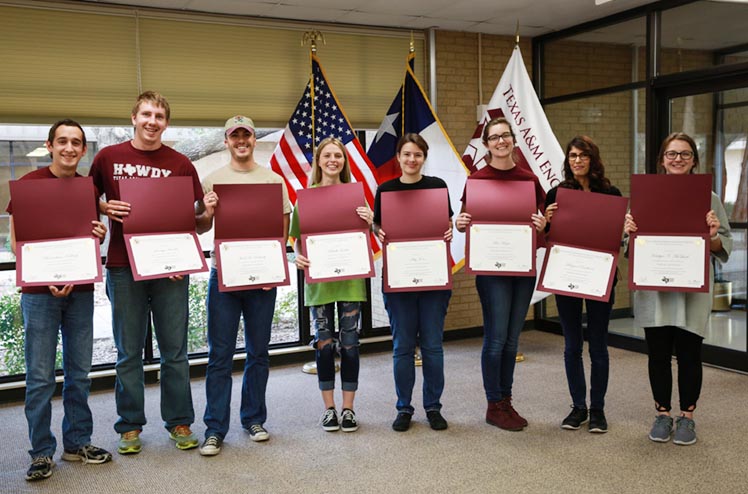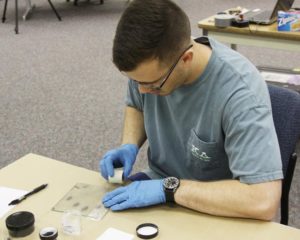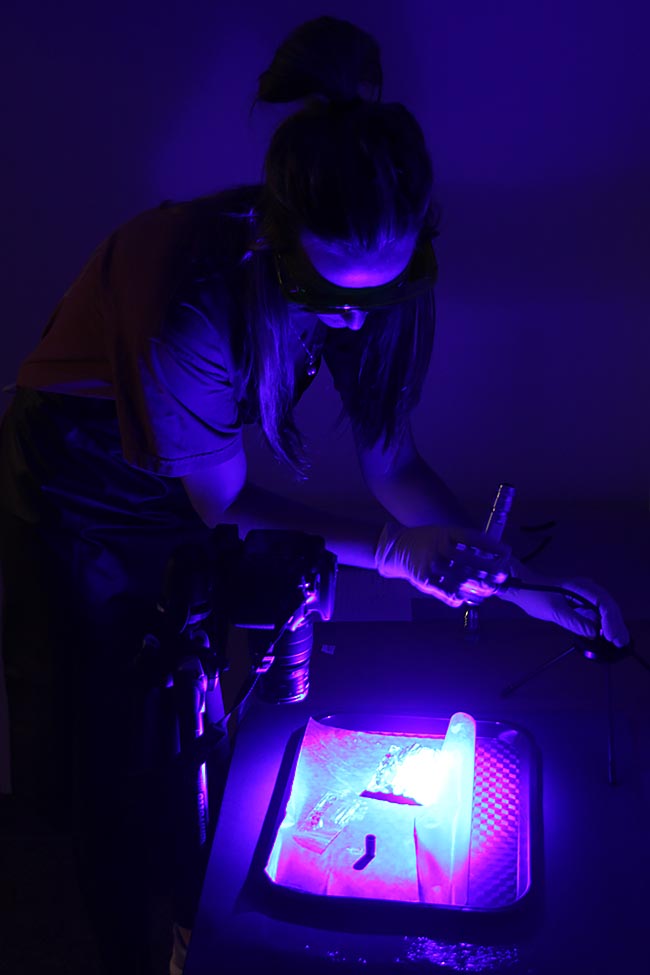
The newest Forensic Technician certificate recipients. From left to right are: Maximilian Kirking, Jeremy Arnold, Jack Peabody, Michelle Jonika, Abby Jones, Ava Moyer, Milagos Pacchioni, and Katelyn McLeod. Photo by Christine Ramirez.
BRYAN, Texas—Eight students received their Forensic Technician certificates during the final portion of the Latent Print Processing course that took place at the RELLIS Campus in Bryan on May 19.
Students Maximilian Kirking, Jeremy Arnold, Jack Peabody, Michelle Jonika, Abby Jones, Ava Moyer, Milagros Pacchioni, and Katelyn McLeod received the certificates after successfully completing the Latent Print Processing and the Crime Scene Investigation mini-courses this spring.
During the weeklong course, the students learned how to properly process fingerprints from crime scenes by using professional techniques. Some of the techniques covered in this year’s class including lifting finger prints from various substrates or surfaces, processing lifted prints by using both chemical and non-chemical techniques, and proper photography for evidence collection.
According to TEEX’s website, the Forensic Technician certificate is designed to give students that have completed the program a recognized credential that can be added to help in the advancement of their careers.
To qualify for the Forensic Technician certificate, students must complete two intensive week-long training sessions in Crime Scene Investigation and Latent Print Processing. Once the students pass the exams after each course, they receive a certificate and are awarded four credit hours for the courses.
Jones enjoyed the latent print course and said the hands-on activities were very helpful in learning all the techniques.
“Everything has been teaching me a lot and I love the hands on activities,” she said.
“I really like the alternative light sources,” Jonika said. “They are fun to work with.”
The Forensic and Investigative Sciences degree program at Texas A&M prepares students for careers that involve the collection, preservation, processing and use of evidence and information to solve problems. These careers include law, medicine, homeland security, public safety, political science, environmental quality, agriculture, public health, chemistry, anthropology, physics, computer science and business.
The partnership between the academic Forensic and Investigative Sciences program within the Department of Entomology and the vocational training provided by the Texas A&M Engineering Extension’s Texas Forensic Science Academy is an example of a multi-agency partnership putting students first. This partnership between faculty and students of TAMU’s Forensic and Investigative Sciences program and experts from TEEX’s Forensic Science Academy continues to strengthen the curriculum at Texas A&M and offer students an opportunity to participate in cutting-edge technologies and current field methods.

